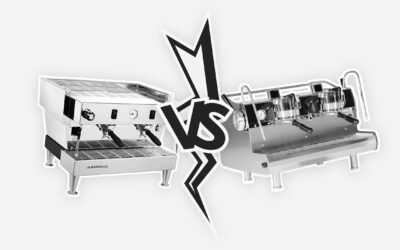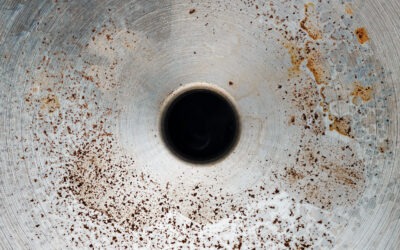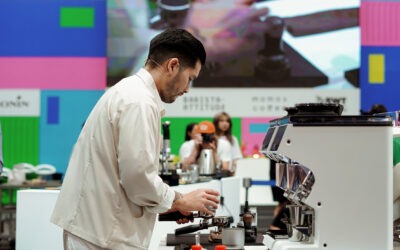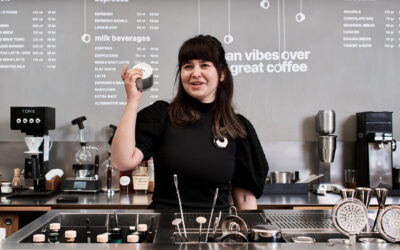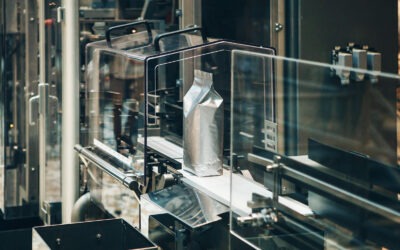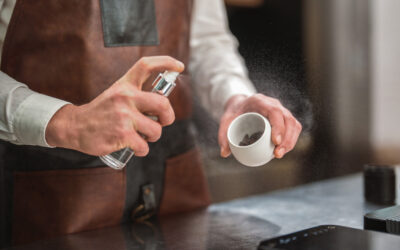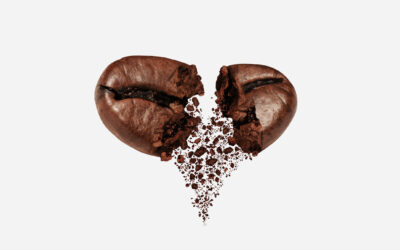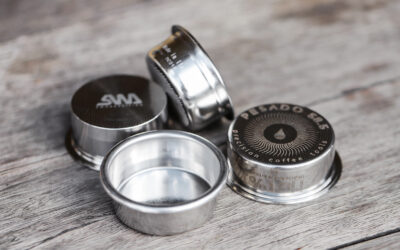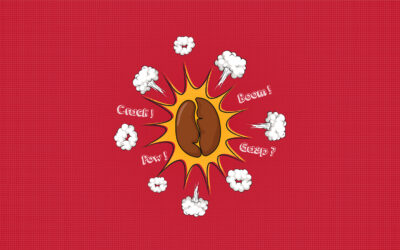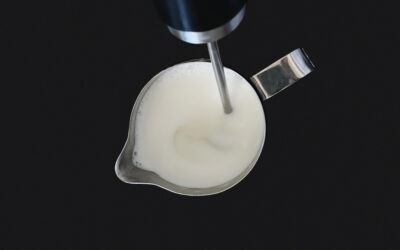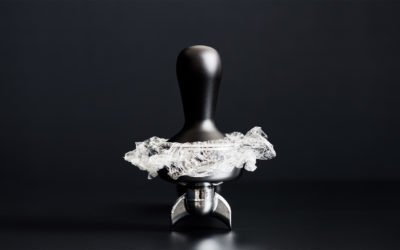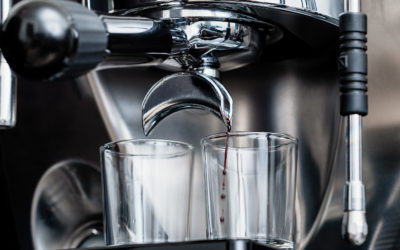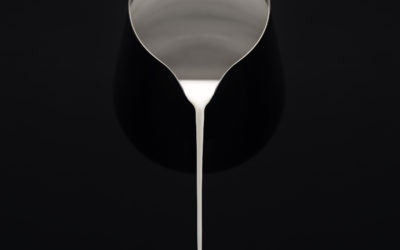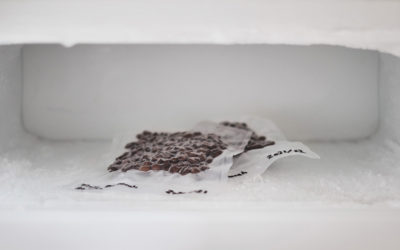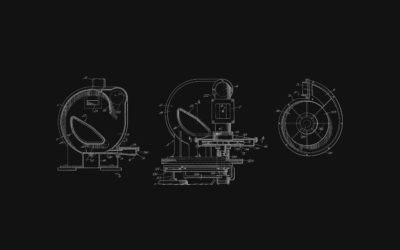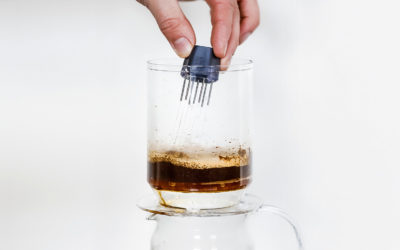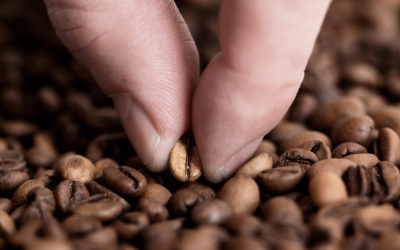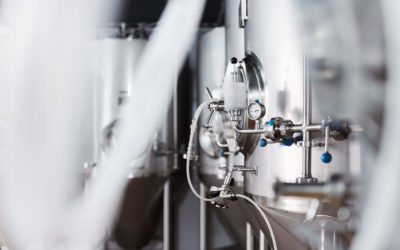The Lion vs The MVP
If you opened your first cafe with a nice reliable second hand LM Linea and you’re curious to know how it compares to a more modern (and more expensive) equivalent, then this blog post is for you.
Shaking Liberates Fines
Roger Roger — Rise of the Robotic Busser
While baristas were starting to worry about their job security in 2017, this month it seems like it’s the floor staff that the droids are coming for instead. At Naver, food delivery and bussing empties are…
Coffee Overdose
Shake it Real Good
Shaken or Stirred
RDT vs The AutoComb
You’ve probably heard that scientists recently caught up with something home baristas have known for nearly two decades: that spraying your coffee with water just before grinding can reduce the amount of static created.…
Grinding Bean-by-Bean
Grinding coffee bean-by-bean is up there with cryogenic grinding, double grinding and re-processing as a kind of impractical perfection — all of which are generally dismissed as inappropriate for the commercial environment…
Round Two — Battle of the Baskets
The defining feature of this new wave of high extraction filter baskets for espresso is the pattern of holes at the bottom of the basket. Manufacturers have completely re-thought the way these are laid out, to ensure even extraction…
Battle of the Baskets
The big leap in espresso technology is something brilliantly simple, intuitive and affordable. It’s the ‘high extraction’ filter baskets. Armed with these new baskets and better distribution tools, baristas are making different…
Tiny Coffee, Massive Bills
In the face of unchecked price-gouging by energy companies, what can cafe owners do to keep their bills under control? Big savings can be had by ditching boilers for good – and even doing away with the espresso machine altogether…
The End of First Crack?
Is it possible that neither first crack, nor the precise adjustments to the gas settings that roasters make afterwards, are actually very important in coffee roasting? No matter how complex a roast profile you design for a drum roaster, you could…
What We Taste When We Taste Acidity
New research published this week, however, suggests that the levels of many of the organic acids found in brewed coffee are so low as to be essentially undetectable (Birke Rune et al 2023).
Iced Latte Art
Cold foam has become pretty popular over the last few years, and yet, visually, cold foam lattes are firmly stuck in the 1980s. In other words: a tall, layered drink in a glass, topped with a spoonful of stiff foam like whipped cream. Wouldn’t it be great if…
Wet Weiss for Espresso
As with all our best and wildest experiments, our investigation of Wet Weiss for espresso began with a conversation with multidisciplinary industrial scientist Professor Abbott. He suggested that adding some water before tamping might allow us to pack the bed of coffee more tightly together.
Pass the Espresso on the Left Hand Side
What’s the Deal with Cryodesiccation?
This year, the Australian champion Anthony Douglas took things a step further with his ‘cryodesiccation’ technique. The process allowed him to make an even more concentrated milk. Anthony paired his concentrated milk with an anaerobic natural Sidra from Finca El Diviso, and together with…
The Evaporation Front
In the last few lessons of our Roasting Science course, we’ve been exploring the evaporation front that forms inside coffee beans as they roast. In coffee roasting this phenomenon has an almost mythical status. It has even been touted as a possible cause of first crack, but there’s very little direct study on this topic, and a whole lot of conjecture. In this post…
A Year in the Deep Freeze
Freezing coffee has been part of the specialty barista’s arsenal for some time now. Ever since we discovered the benefits of grinding coffee from frozen, we’ve been keen advocates of vacuum-sealing small amounts of roasted coffee, so that you can keep that rare and expensive microlot on ice, and always have something ready for a special occasion.
Who Really Invented the Air Roaster?
The invention of the air roaster revolutionised coffee roasting, allowing faster roasts on larger scales than had ever been possible before. In the decades since it was invented, the air roaster became hugely important in industrial coffee roasting — although the classic drum roaster remains the machine of choice for most smaller-scale roasteries …
The Possibly Lactic Process
The two main players in wild coffee fermentations are yeasts and lactic acid bacteria (LAB). LAB are a broad group of bacteria species that ferment glucose into lactic acid and, in some cases, ethanol. Along the way, LAB produce a lot of delicious flavour compounds — esters, ketones, and aldehydes — that can lend coffee distinctive floral, fruity, creamy, and buttery notes…
Wet Weiss Distribution
If you have ever ground your own coffee, then you’ve probably tried the Weiss Distribution Technique (WDT). Possibly even without realising you were doing something that had a name, you might have grabbed a paper clip and done a little puck raking just for the pure catharsis of breaking up those clumps of coffee grounds. But have you ever tried doing WDT in wet coffee?
Post-Roast Sorting
If you ever hang out backstage at the World Brewers Cup Competition, you’re very likely to see baristas hunched over trays of coffee, obsessively picking over their beans. Any slight blemish or discoloration, any deviation in size or shape, and the offending bean is plucked out and discarded, until only the most perfect physical specimens are left to face the judges.
Deconstructed Fermentation
Diego Bermudez uses a multi-stage process to isolate and control the different phases of coffee fermentation — even to the extent of carrying out part of the fermentation away from the coffee beans themselves. The resulting coffees have incredibly intense, fruity flavours that push the boundaries of what coffee can taste like. After several years of experimentation…
